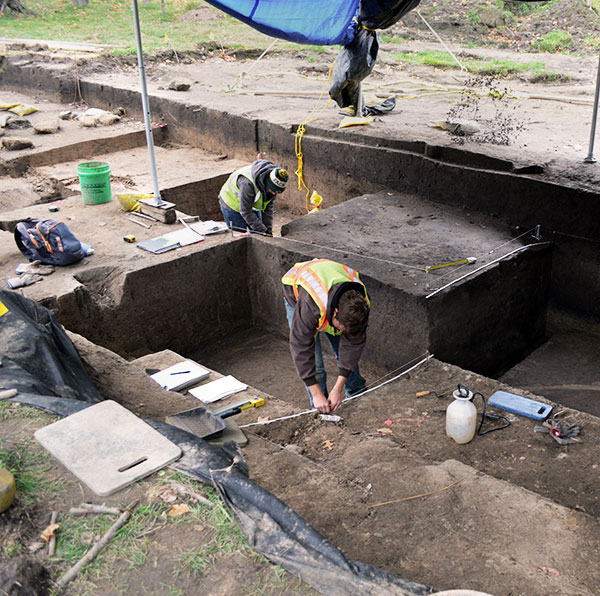As of January 2, 2014, UWM’s Historic Resource Management Services program (UWM-HRMS) was expanded to include key personnel and expertise from the former Great Lakes Archaeological Research Center, Inc. (GLARC). The new program has been re-named University of Wisconsin-Milwaukee Cultural Resource Management (UWM-CRM). All GLARC archaeological collections and related project documentation held by GLARC at the time of the merger are now curated by the UWM Archaeological Research Laboratory Archaeological Repository and Archives located on campus in Sabin Hall.

UWM’s CRM program was established in 1974 and has been managed as a contractual arm of the Department of Anthropology ever since. GLARC was incorporated in Milwaukee in 1976 and quickly established a reputation for high quality, cost-effective CRM work. The new UWM-CRM program has been designed to provide clients with the same elevated level of service clients have come to expect from both programs. However, the UWM-CRM program will be able to offer clients a “one-stop shop” consulting service enabling clients to comply with historic preservation regulations relating to both archaeological sites and architectural-historical resources.
The UWM-CRM program offers a full suite of archaeological and architecture history services for clients across many markets/sectors, including but limited to: transportation, utility, telecom, private individuals and businesses/developers in addition to local and county municipalities.
The UWM-CRM program has strong technical report writing skills and experience as evidenced by the volume of formal report of investigations, technical memos, agency short forms, and cultural resource documentation prepared on an annual basis; the creation and implementation of regulation-driven reporting formats; familiarity with all types of cultural resource documentation formats; and the record of successful agency submittals.
Over the past several years, UWM-CRM has prepared over 300 formal reports of investigations and over 800 technical memos/cultural reviews relating to a variety of cultural resource projects.
In addition to the report of investigations and technical memos, the UWM-CRM program has prepared a wide variety of cultural resource documentation types required under Section 106 of the NHPA and NEPA.
UWM-CRM also provides a broad spectrum of interpretive services from exhibition master planning to the design, fabrication, and installation of traveling and/or temporary exhibitions including the development of accompanying curriculum materials, social media plans and digital products such as supporting web sites.
CRM News
- Identity and Dinner: The Interpretive Potential of Plant Macroremains - For more than 20 years the Menominee Historic Preservation Department, the College of Menominee Nation, the University of Wisconsin-Madison, the University of Wisconsin-Milwaukee, Midwest Ethnohorticulture LLC, and others have been collaborating on a renewed series of studies about ancient Menominee garden systems.
- Dr. Patricia Richards and UWM-CRM featured on Milwaukee PBS - The program summarizes the recovery of human remains associated with the unmarked, abandoned Second Ward Cemetery, also known as the Gruenhagen Cemetery or German Protestant Cemetery. The work was done as a result of the expansion associated with Guest House of Milwaukee, a non-profit shelter for homeless men.
- Seth Schneider presents at the Illinois Association for the Advancement of Archaeology - Title: Archaeology Around Lake Koshkonong
Event: Rock River Symposium at the Illinois Association for the Advancement of Archaeology - Jennifer Haas gives Brown Bag talk to Public Service Commission - Title: Archaeology and Historic Preservation in Wisconsin
Event: Archaeology Brown Bag, Wisconsin Public Service Commission - Patricia Richards presents in poster session at the SAA Annual Conference - Title: Challenges to the Wisconsin Burial Sites Preservation Statute (WisStats 157.70)
Poster Session: North American Midwest I